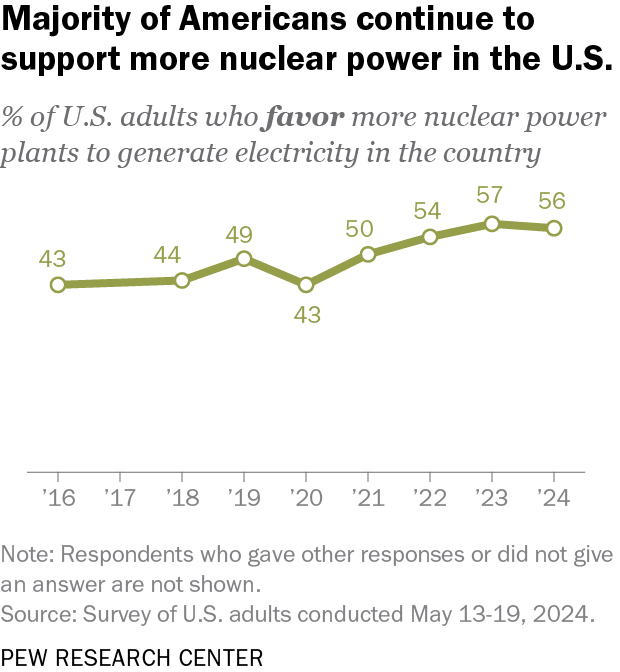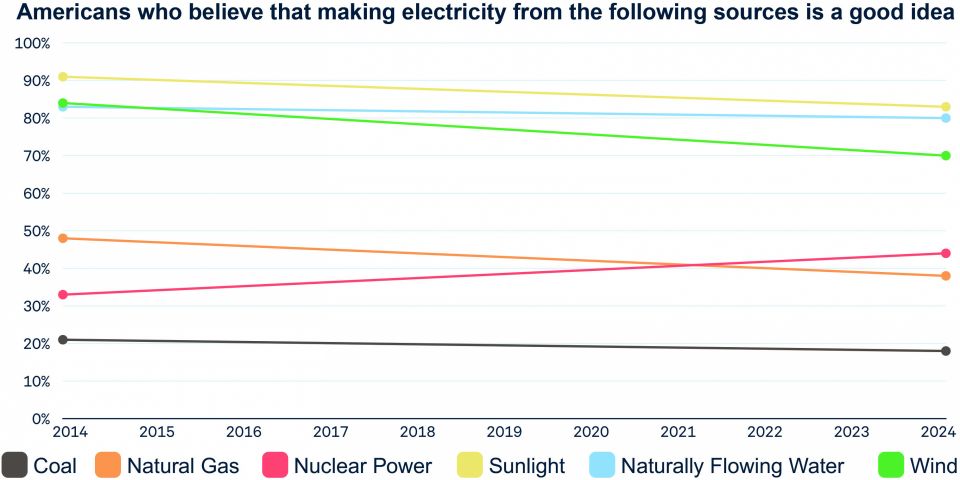Pew shows majority support for U.S. nuclear
 A number of surveys and polls, such as Bisconti Research and University of Michigan surveys, have found steady or growing support for nuclear energy among Americans during the past several years. The Pew Research Center on Aug. 5 reported its nuclear-related findings from its survey conducted in May with a representative sample of U.S. adults. The results show 56 percent of respondents favor the construction of additional nuclear power plants in the United States.
A number of surveys and polls, such as Bisconti Research and University of Michigan surveys, have found steady or growing support for nuclear energy among Americans during the past several years. The Pew Research Center on Aug. 5 reported its nuclear-related findings from its survey conducted in May with a representative sample of U.S. adults. The results show 56 percent of respondents favor the construction of additional nuclear power plants in the United States.
That level of support is similar to last year’s findings (57 percent support) and is up substantially from the 43 percent, 50 percent, and 54 percent that Pew Research reported in 2020, 2021, and 2022, respectively.

-3 2x1.jpg)



